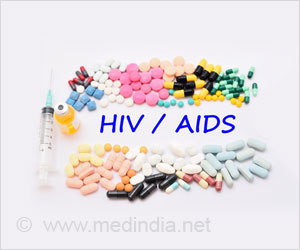A new battle plan for fighting AIDS is needed in sub-Saharan Africa, the world's hardest-hit region, where most people with the possible deadly virus are unaware of their condition,
Experts said Tuesday that a new battle plan for fighting AIDS is needed in sub-Saharan Africa, the world's hardest-hit region, where most people with the possible deadly virus are unaware of their condition.
If after 30 years of the pandemic "90 percent of people living with AIDS do not know their status... 70 percent of people who need treatment are not getting it, then there is something we are not doing right," Wasai Jacob Nanjakululu, an HIV/AIDS expert for the British charity Oxfam, told AFP.Grassroots movements from 32 mostly African countries have gathered for an AIDS conference in Nairobi, which opens Wednesday, aimed at exploring radical new approaches to stopping the spread of the disease.
"We are far from winning the struggle against AIDS," said Leonard Okello, an ActionAid International expert in HIV/AIDS.
He said the three-day Nairobi conference would take an honest look at the shortcomings of recent policies to combat the disease and seek new methods.
Millions of dollars -- mostly Western-sourced -- have been poured into anti-AIDS campaigns, but experts say these are not being spent effectively.
"There are a lot of resources in HIV/AIDS programmes but not much of that reaches the community. What is it that we should radically change?", said Okello.
Advertisement
"We were too slow, even when we had evidence staring at us, we buried our heads in the sand," she said.
"We need innovative health financing," said Okello.
Prevalence rates have dropped in parts of east Africa to around six percent but some countries have failed to stem the tide.
For example, infection rates among pregnant women in Swaziland, Botswana, Lesotho and South Africa top 30 percent.
Source-AFP
THK














